- Popular Post
-
Posts
471 -
Joined
-
Last visited
Content Type
Profiles
Forums
Store
Downloads
Recruiting - 2020
2019-2020 Football Season
Football
Entertainment
Sports
News and Business
Cloak Room
Transfer Portal
Recruiting
Events
Posts posted by fuggled
-
-
Also, only thing I have to add from my wife's family is fuck Peppermint Parkway at COTA. What a bullshit scam that place is.
-
Just curious, but how did she buy the tickets?So, it's my "extended" family, sort-of. The events occur last night.
My GF has daughter that's married with two kids. Nice family. SIL ("John" for purposes of this post) is from Rancho Santa Fe...his folks have some dough.
So, John's Mom decides to take John, his wife, and his two kids to see a live production of "Grinch" at the Old Globe in San Diego. For those that aren't familiar, The Old Globe is a pretty cool venue that does a ton of stuff that ends up on Broadway.
Anyway, she springs for front-row seats. Hires two limos. One for John, wife, and kids, and another for herself and John's Dad. John and family are about 35 miles N of the venue, so it's a fairly long limo ride.
Each limo is stocked with nice champagne, shrimp cocktails, chocolates, etc. Everybody dressed in their Sunday best.
So they get there, arrange for the limo drivers to return at a set time, and go in. But, they don't get in, because the $1600 worth of tickets that she bought are fakes, and it's a full house with no room anywhere.
John's mom is so upset...loses her shit, feels like an idiot, is crying, etc. (She's a super-lovely woman, not crazy as far as I can tell). Anyway, in her upset-ness, she slips on the wet sidewalk and faceplants. 911 is called, and she's taken away in an ambulance. Ambulance won't let John's dad go because COVID, so they get an uber. Ambulance takes her to a ghetto ER full of homeless, stabbing victims, etc.
John's wife is calling the limo driver to get a ride back home and he's not answering.
Wife and kids have to get an expensive uber home, and John, once he sees that Mom is stable, catches another expensive uber home so he can get his car and come back to drive Mom and Dad home.
Mom has a concussion, and her face is bruised and bloodied. Merry Christmas everyone!
Sent from my Pixel 5 using Tapatalk
-
A few days ago we drove down to spend the week with my wife's family in Austin. Yesterday I'm doing some cooking when my phone rings and I see it's my dad (back in Dallas) calling. We have the following conversation:
Dad: Have you been following our text thread with Mrs. Fuggled?
Me: Nope, what's up?
Dad: We're at your house, but can't find any kind of delivery notice for the package.
Me: What package? Hang on. Hey, wife, what is my dad taking about?
Wife: Well, I wanted Santa to leave a special tree for our daughter that she can put her own ornaments on, so I asked your parents to go over to our house to set it up. But I got a message that Amazon couldn't deliver the tree.
Me: Is it a USPS delivery?
Wife: Yes, why?
Me: Because I put on a hold on our mail when we left like I told you 3 days ago. That thing isn't getting delivered.
Wife: Well, maybe your dad can go to the post office and ask nicely if they'll give him our mail.
Me (back on the phone): Dad, go home. Thanks for trying.
Sent from my Pixel 5 using Tapatalk-
 1
1
-
 4
4
-
 4
4
-
-
Sorry, it took me a while to eat and review this new fruitcake. Fortunately, you're not missing too much if you don't get a chance to order one of these this year.
Thanks to a gift from work, I was able to order a new variety of fruitcake from Goldbelly this year. This one is a 3 pound cake from Eilenberger's Bakery in Palestine, TX. I expected this East Texas offering to be about 20% more racist than other fruitcakes, but otherwise I had high hopes.
Packaging & Storage
The Eilenberger fruitcake came in a round, green tin with a turn of the century scene on the lid. The design is nice, but the tin itself was thin and flimsy. You can sort of see next to my beer can where the tin was dented in shipping. So unfortunately, I'm not expecting to get much reuse out of the tin. This fruitcake didn't come with much direction on storing it, but we learned as we ate it that it actually dried out fairly quickly once it was opened. Finding a better way to store/seal it might have been helpful.Appearance
The top of this fruitcake is absolutely covered with nuts and fruit. That's not surprising since the first 3 ingredients in the fruitcake are pineapple, pecans and cherries. It definitely looks delicious inside the tin.Taste Test
As you'd expect based on the ingredient list, this cake is extremely heavy on the fruit. So much fruit! And lots of good sized chunks of nuts. There's actually so much fruit that the cake can collapse a bit when slicing it, so chilling it might have been a good idea. This cake has a really good flavor, definitely centered on the fruit. It's not as dark and complex as Assumption Abbey, but it's not as super sweet as Collin Street. It's somewhere in between those two. There's definitely a cake texture to this one, which I prefer. Because there is so much fruit, the cake tended to crumble a lot and the cake started drying out fairly quickly for some reason. I was often left with a pile of cake-coated fruit that I was trying to scoop up with my fork (see the second photo below). It didn't have the moisture to stick back together. So, overall, the flavor was good but not very complex and there was more crumble than I'd prefer. My wife really liked the flavor of this one.
This was a decent cake, but not my favorite so far. This one was also quite a bit pricier at $72 (including $15 for shipping), as opposed to ~$37 for Assumption (including shipping). Collin Street was about $37 last year. As far as I can tell, Eilenberger only ships through Goldbelly, so there's probably a considerable markup in there. It's definitely not good enough to justify being twice as expensive as these other fruitcakes. -
My son made this "cross between a cobra and a rattlesnake." Watch out for it in the wild.

Sent from my Pixel 5 using Tapatalk-
 1
1
-
 3
3
-
-
1 hour ago, NeverMarryAStripper said:
You really should have included the plate number in the photo

-
 1
1
-
-
-
When we went a few years ago, we drove from Seattle to Vancouver then took a ferry to Galiano Island for a few days and another ferry from there to Victoria. I think the ferry actually got into Swartz Bay and then we drove down to Victoria. We had 2 kids (5 and 2) when we went, so factor that into any recommendations.
On the drive down to Victoria, we stopped at Sea Cider Farm & Ciderhouse. We really enjoyed that stop. A little rough with the kids in tow, but great cider. I think they hard a dozen varieties in a flight for us. This might have been the only alcohol we brought home from the trip.
I echo what everyone said about Butchart Gardens, it really was amazing. There was also plenty to hold the kids attention.
We stayed near the inner harbor, just across the street from the Empress hotel. That whole area is easily walkable and there's lots to see. The water taxis in the harbor put on a choreographed "ballet" with music that is worth watching. The area around Thunderbird Park and the Royal BC Museum was nice. There was a fish & chips stand a bit north of there on the water called Red Fish Blue Fish that was great. We just liked exploring the area and somewhat accidentally strolled about a mile to a farmers market nearby called Moss Street Market. We were pleasantly surprised that farmers markets in Canada can sell beer. There was also a park and playground adjacent to the market for the kids.
Funny story, we were walking through Victoria Chinatown and randomly stumbled upon the Mexican heritage festival. There were a dozen Mexicans in Victoria. My Mexican wife whose family is mostly in Laredo and San Antonio thought this was hilarious. We did score some tamales though.
A bit out of the way is Fort Rodd Hill and the Fisgard Lighthouse. I can't remember how we ended up here. Must have just been out for a drive and killing some time (maybe trying to get the 2 year old to sleep). Anyway, it's a nice park with a lot of exhibits of the fort and artillery that was active through WWII.
-
Well, hello there, beautiful. Come here often?

Sent from my Pixel 5 using Tapatalk -
On 11/29/2021 at 4:30 PM, Mo Horn said:
I love fruitcake. I make my mother's recipe, and can't wait.
On 11/29/2021 at 7:59 PM, Chewbacca said:My MIL makes a fantastic fruitcake. She sends us 2 every year. One is mine and one is for everyone else.
On 12/2/2021 at 9:41 AM, CHIEF said:I have my maternal great grandmother's recipe. After she passed, it was always my father that made them. Now that he has passed, I guess I'm gonna have to take up that mantel. I absolutely love them. My Dad would alter the recipe to have a little more of the candied red cherries than other candied fruits. He would make about $2500 or so around Christmas time baking a bunch and selling them.
CHIEF
Would any of you be willing to share your recipes? I've never tried making my own, but think I might want to give it a show someday.
-
43 minutes ago, conVINCEd said:
Fruitcake sucks.

-
- Popular Post
- Popular Post
TLDR: I like fruitcake and took pictures.
Growing up, my grandparents and great-grandparents would always have fruitcake in the house for Christmas. It would live on the kitchen table and was up for grabs to pair with your breakfast or a cup of coffee or just as a snack. It generally wasn't for dessert, which was the exclusive domain of pie. Fruitcake always came in a tin, and the tin was always saved for storing and sharing Christmas cookies. As a kid, I didn't have much of an appreciation for fruitcake. I craved straight up sugar, and that's not what fruitcake offered. But, I relished those candied cherries on top and over the years the fruitcake tin on the table became an enduring symbol of Christmas with my family. As I grew up, I eventually learned to appreciate the deliciousness that is fruitcake. It was a quintessential tradition that I could observe passed down from one generation to the next.
Over the years, life got complicated and it was difficult to get back home for Christmas. We had fewer opportunities to gather together and that shared fruitcake on the table became a less common sight for me. The family elders passed over the years. My last living great-grandmother passed nearly 20 years ago and my final surviving grandparent (my mom's mother) passed away earlier this year. Last year she buried her last living sibling. This year she buried the first of her daughters. I think that was enough for her. A void's been created that leaves me missing those traditions of Christmases past.
Thus, I felt compelled to bring the fruitcake tradition to my nuclear family and create that experience for my own children (now 10 and 6). But, does the fruitcake of my youth deserve to occupy the prominent space on my table as the fruitcake of the future? I wasn't so sure. And so, my search began to discover whether a fruitcake exists that can supplant my grandparents' favorite.
Last year I ordered two different fruitcakes and enlisted the family to help me evaluate which is best. The offerings for consideration:#1 Assumption Abbey Fruitcake from Ava, MO - This is the fruitcake my family would always order. Probably because my dad's family was Catholic and they valued the connection to the monks. These are Trappist monks and hence they make Trappist fruitcake. They make good beer and good fruitcake. Apparently there are other Trappists in the US making fruitcake, but this is the only one I've tried. As the traditional fruitcake of my family, it was the first I brought to my own table.
#2 Collin Street Bakery Fruitcake from Corsicana, TX - I've lived in Texas more than 30 years and this seems to be the most widely publicized fruitcake in the state. Despite living here so long, I've never tried it myself. After years of driving past their stores, it seems like it's finally time to give the fruitcake a shot.
Our experience and observations are shared here with you to help make the world a better place this holiday season. My search for life-changing fruitcake will continue, so please share any recommendations you have!
Packaging & Storage
Assumption Abbey (AA) showed up in a round, white tin with gold trim. The lid features a simple name and logo for the abbey in black. I'm delighted by the fact that this fruitcake is shelf stable for 2 years, no doubt a result of the booze infusing it. Getting 2 years of utility out of a 2 lb doorstop, followed by a tasty treat is just good value for your dollar.
Collin Street Bakery (CSB) came in a round, red tin that felt a bit thinner than the one from AA. The name of the bakery is printed in a stylized white font on the side of the tin. The lid features a festive (some would say busy) collage of Texas related holiday scenes. This fruitcake came with a brochure from the bakery offering an overview of all their products and handling instructions. Sadly, the fruitcake only seemed capable of lasting a few months even if stored in the fridge.
Personally, I like the simple, clean packaging from the abbey. This, coupled with the extended shelf life, gives AA the edge in this category.
Appearance
Inside the tins is a different matter. The AA cake is wrapped around the sides in red wax paper. The cake is dark brown with 4 pecan halves and 4 cherry halves evenly spaced on the top.
The CSB cake is wrapped in gold foil. The cake is a bit lighter shade of brown, but it's hard to tell because the top is completely covered in pecans. Several chunks of candied fruit are mixed in among the pecans.
The AA cake looks very clean, but the field of pecans was more appetizing on the CSB cake. So CSB takes this category.
Taste Test
AA is a dark, moist cake with a deep, complex flavor. Chunks of fruit and nuts are evenly spread throughout the cake. The cake itself has just a bit of crumble to it, but holds together nicely. The cake is definitely sweet, but this is balanced with some tart, bitter and roasty flavors from the wine, currants, citrus peel and rum. There's a bit of cinnamon in the cake, but it's not heavily spiced.
CSB is a whole different animal. CSB Fruitcake : cake :: circus peanuts : peanuts
From the moment I sliced this, it obviously had a completely different texture. This was apparent in the tasting as well, where my wife and I felt this ate more like a fudge than a cake. It's a smooth, creamy and sticky texture that doesn't have any sense of crumbs in it. The flavor matched this. It really came across more like candy than the semi-sweet cake that I'm used to. There was no ingredient list provided, but the website brags that pecans are the biggest ingredient along with fruit and honey. That's how it tastes. I would even say it was cloyingly sweet. My kids loved it. And served in small portions like fudge, it worked well. But, I didn't get any of the bite that comes from wine, currants and rum. I wouldn't eat it with my coffee in the morning.
The winner is a matter of preference here. If you're going for a no-chocolate, nut fudge, CSB is solid. But I'm looking for something much different and the complexity of the AA was more to my liking. My wife agreed on this one.
Conclusion
For my money (BTW, both cakes were ~$38 with shipping), AA is the better cake. Yes, I'm clearly biased because this is what I grew up with and there's a strong nostalgia factor. Don't care. I'm still open to trying something new and different, but I'm hanging on to this one as my favorite for the time being.-
 10
10
-
 1
1
-
 1
1
-
1 hour ago, TexEx15 said:
Just tried calling Walgreens to schedule my kids but they're still waiting on CDC approval (at least according to the one pharmacist I spoke with). 😒
-
We were camping at Old Settlers this past weekend and found this guy in the middle of our campsite. We had already been there 3 days when an 8 year old almost stepped on him, so no idea where he was hiding before that. My 10 year old is a snake fan, so we managed to relocate him to the edge of the property. Looks like he might have been injured before we found him, so don't know if he made it. We heard there were a number of copperheads found throughout the campgrounds, most weren't lucky enough to be relocated.
-
 1
1
-
-
2 hours ago, DonkeyCigars said:
I’ve kept CNN on in the hotel room; I never watch any cable at home outside of market news. I thought I’d be fair and balanced and listen to cnn during all this because I’ve been told on here that CNN is not propaganda and is fair and real journalism. You are seeming to imply otherwise…
"Not propaganda" doesn't mean "not sensationalized."
-
 1
1
-
-
- Popular Post
- Popular Post
2 minutes ago, ouflak said:Ok they lose their job, but let's say they still aren't going to get themselves vaccinated. How do we get those people vaccinated?
My man, you've asked the same question a dozen times already. You obviously aren't getting the answer you want to hear. Would you like to try just putting your opinion out here and see were that goes?
-
 13
13
-
 2
2
-
14 hours ago, Lobo said:
I can already tell I'm regret asking this but what are "Puberty Blockers"? Is like when you don't let a 9 year old have an AR-15?
Not sure if you already got an answer to this, but this is related to transgender kids. One of the treatments helps delay puberty. The intent is that it gives transgender kids and families time to figure out what the right path is before the kid goes through all the changes of puberty, which may be confusing and difficult to reverse. This came up when Arkansas tried to block all the trans treatments for kids.
This article covers some of it: https://www.scientificamerican.com/article/new-arkansas-law-and-similar-bills-endanger-transgender-youth-research-shows/
QuoteExperts say claims that gender-affirming medical treatments are experimental or risky are flawed on several levels. Puberty blockers—a class of drugs called GnRH agonists that dampen the effects of sex hormones—have been used safely for decades to delay puberty in children who start it too early. In transgender youth, the drugs are used to prevent the development of permanent sex characteristics such as breasts and voice changes at the onset of puberty—generally age nine or older. Gender-affirming hormones—testosterone or estrogen—are not usually given until a person is in their teens. These hormones promote the development of sex characteristics that are different from those of the sex that an individual was assigned at birth.
-
 1
1
-
 1
1
-
-
1 hour ago, Captainant said:
this jives with the reporting I've seen around vaccinated deaths/hospitalizations - it's predominantly the folks who are in a weakened state or otherwise immunocompromised who are getting the worst of the breakthrough infections
jibes
-
 3
3
-
-
32 minutes ago, wild_turkey said:
I’m having a hard time processing SB 8. Can someone explain all of this to me like I’m 5?
Just to recap my very limited understanding, which is probably flawed:
pre-1973 - Abortion illegal in Texas
1973 Roe v. Wade - It is unconstitutional to have a total ban on abortion. Women have the right to choose in the first trimester but restrictions can be made for the second trimester.
1973-present - Conservative states implement measures to make abortion more difficult, i.e. needing an ultrasound first, but never anything that directly violates Roe v. Wade.
2021 SB 8 - Private citizens deputized to sue any person who has an abortion or anyone who aids and abets an abortion after 6 weeks. This can happen an unlimited number of times to the tune of $10k a pop. Time will tell if these lawsuits will be successful, but the threat of extreme legal repercussions will likely be a deterrent to anyone performing an abortion moving forward.
What I don’t understand is this…
1. How can the State of Texas allow (encourage?) anyone to sue someone else for an action that is already protected by a U.S. Supreme Court decision? It’s like saying “Alright, we agree that Brown vs. Board of Education ruled that racial segregation in schools is unconstitutional, so we’re not going to pass a law to authorize segregation per se, but we’re going to pass a law to allow random people to sue anyone involved with black people attending a white school.” I don’t understand the basis for being able to sue someone for something that isn’t illegal in the first place.
2. If this can be done to effectively eliminate Roe v. Wade, then can’t it be used for any state to invalidate almost any SCOTUS decision the state disagrees with? What’s the power of the SCOTUS then?
3. What stops states from using this tactic to pass other absurd laws to target groups of people or prohibit activities they don’t agree with? Conservative states could do the same thing to prohibit gay marriage or eliminate healthcare for transgender people. Liberal states could allow citizens to sue each other for having a handgun. Chaos ensues?
4. Is there any legal precedent to deputizing private citizens to sue each other for the sake of enforcing a “law”, however sensible or irrational that law may be?
5. Is there any legal precedent to allowing one person to sue another person for an action that did not directly harm the plaintiff?
Sorry for the long post and for asking questions that have likely been hashed out somewhere in this thread. I’ve been trying to read and understand this but my pea brain is failing me on this topic and I need help.You're raising a lot of the same points that the DOJ included in their lawsuit. It's a good read to back up your logic.
https://apps.npr.org/documents/document.html?id=21060104-us-v-state-of-
-
 2
2
-
-
They provide their own definition of fetal heartbeat in the law. Basically says something about cardiac noise. It's just a label they've put on something that clearly isn't a heartbeat.So help me understand surley legal eagles, reading this federal suit and the comments from gov hotwheels and his pit crew. They keep referencing the heart beat,
"Renae Eze, spokeswoman for Gov. Greg Abbott. “Texas passed a law that ensures that the life of every child with a heartbeat will be spared from the ravages of abortion."
Now there was another article posted a page or two back stating that at 6 weeks the fetus hasn't developed it cardiovascular system yet so the pulsating we see on the sonogram isn't really a heart beat.
Is that meaningless in all of this ?
Sent from my Pixel 5 using Tapatalk
-
Hoping someone can help me out here. My van got rear-ended a week before I was supposed to take the family on a 2-week camping road trip, leaving the rear liftgate unable to open. Not really having another option, I rented another van for the trip. The accident was 4 weeks ago and the other guy's insurance finally today accepted liability. The question is, should I be compensated for the 2 week van rental under a loss of use claim? The insurance company is only offering to cover a rental while repairs are being made and pushing back because my van was technically still drivable when I had the rental.
-
This is so random, I'm not even sure where to post it.
We're heading out on a camping trip this weekend and I ordered a pack of 2 bite valves from Walmart to replace one the kids had chewed through.
They finally showed up yesterday, yeah! Only thing is, instead of sending me a pack of bite valves, they sent me a case. I double checked and they only charged me the couple bucks for a pack, but now I'm flush with 48 bite valves. An embarrassment of riches is what it is. After 18 months of lockdown, multiple deaths in the family and social/political chaos, things are finally looking up!
So the question is, does anybody need some bite valves? What would you do with them?
Step 1: Magically procure bite valves
Step 2: ???
Step 3: Profit
-
 1
1
-
 3
3
-
-
Anyone have a recommendation for a reliable handyman in DFW (Richardson specifically)?
Here's the deal...I have an L-shaped maple butcher block countertop (~35 sq. ft.) that I need sanded down and refinished. Finish is a straight forward one-step product (wipe on, buff off after 5 minutes). I would do it myself, but I want someone to handle it while our family is out on vacation so the finish has time to cure and I don't have to deal with complaints from the family about the kitchen being unusable.
So far, I've had one handyman ghost me and 2 others tell me they don't do that kind of work. Any recommendations? I'm also thinking about reaching out to flooring contractors to see if they'd take the job.
-
3 hours ago, elfenix said:
Afaik LHB is the marching band, there's also basketball band. Not sure on the overlap but they can write too.
I think @Wally Pryor is referring to this news that there's going to be a second marching band formed that won't play The Eyes, in addition to the current LHB.
https://music.utexas.edu/news/changes-expand-options-access-diversity-university-bands


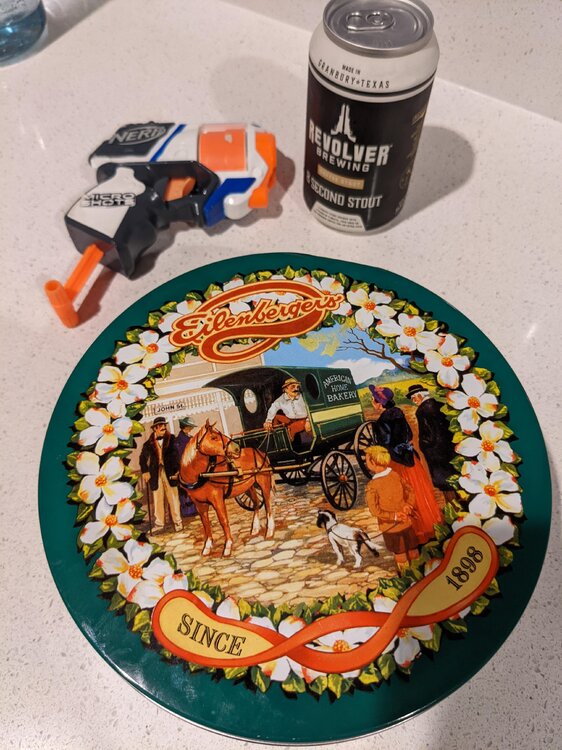
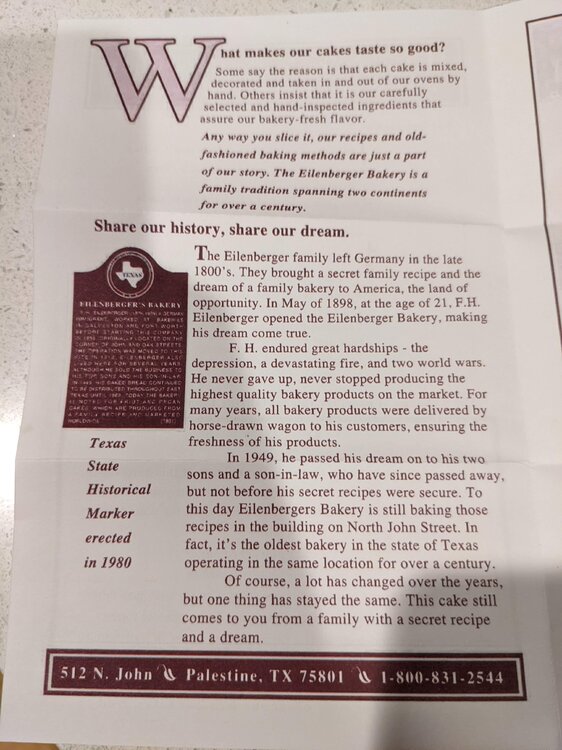




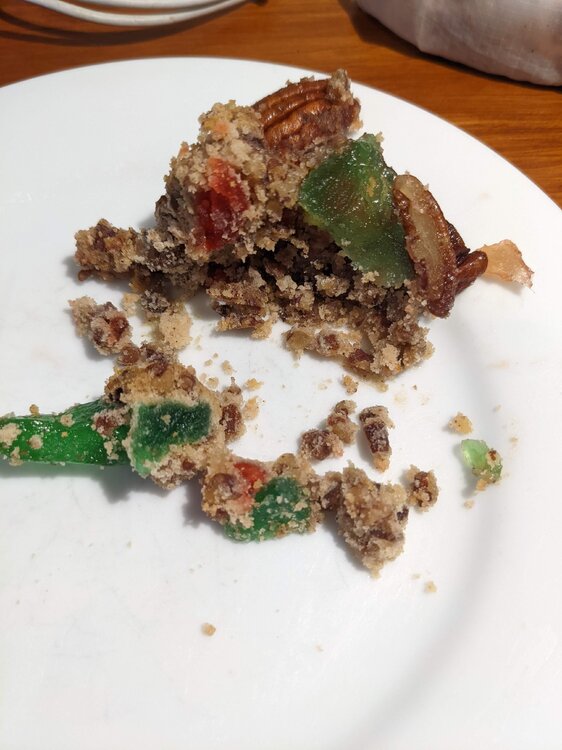


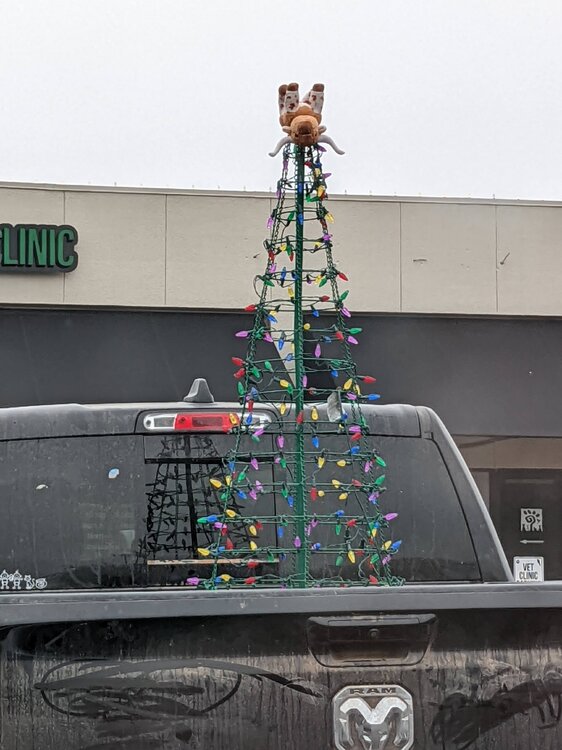




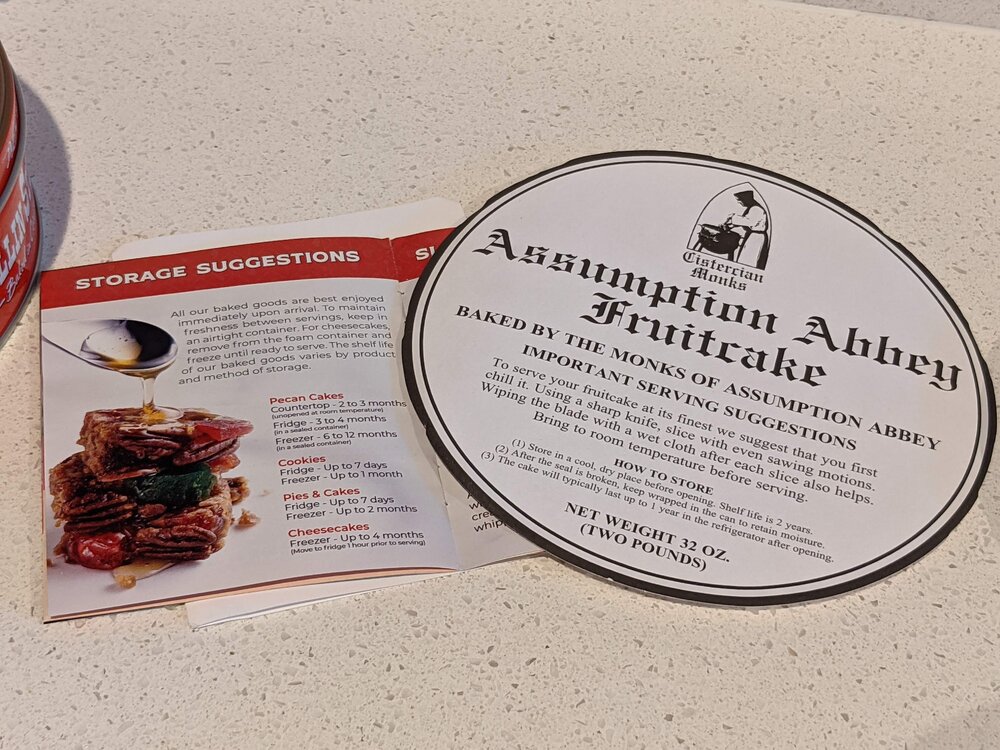




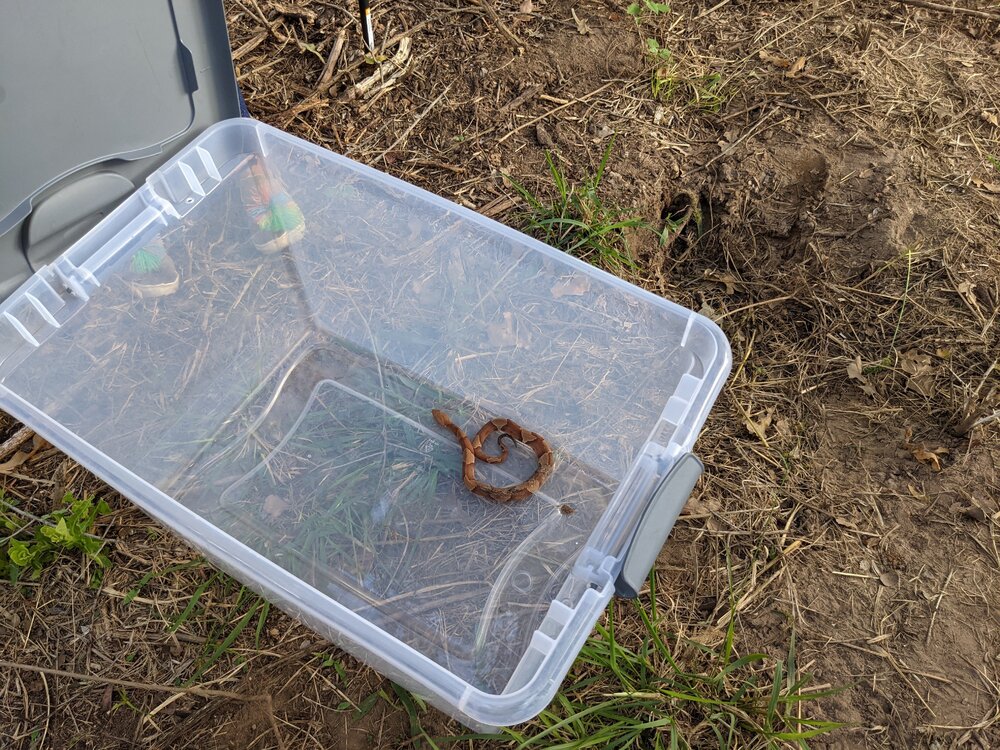
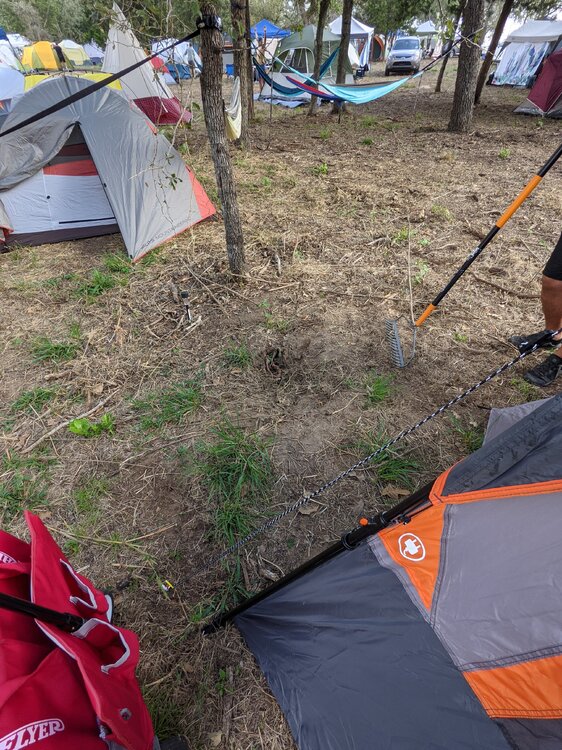
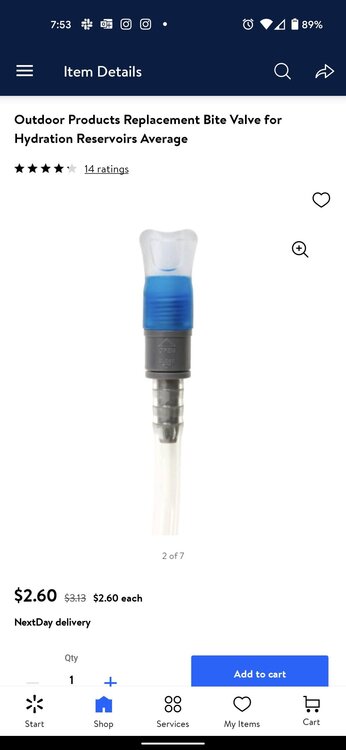
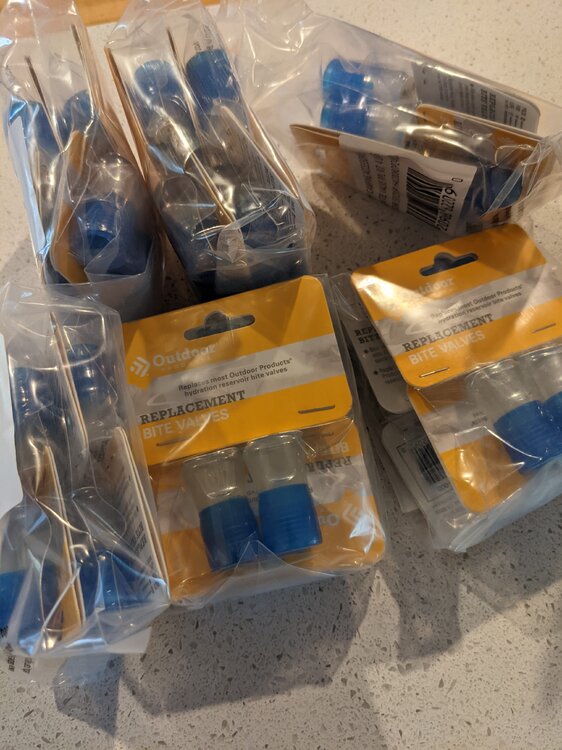
Official 2021 Bitch about family/Holiday Insanity
in Lulz
Posted
My whole family has convened on the BIL's patio for a relative I've never met to perform a fire dancing routine.